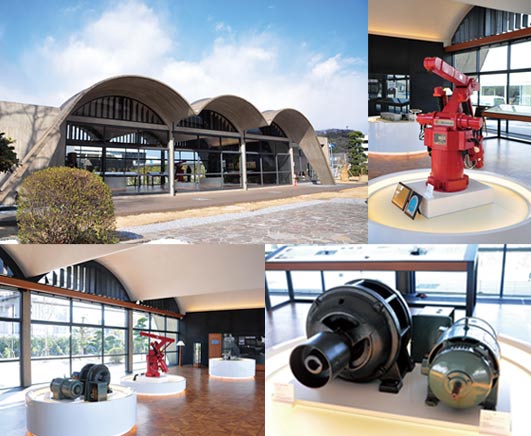With our 100th anniversary in 2015,we saw the drastic changes in our surrounding environment and opportunities, which we outline the direction of our management for the future as "Vision 2025".
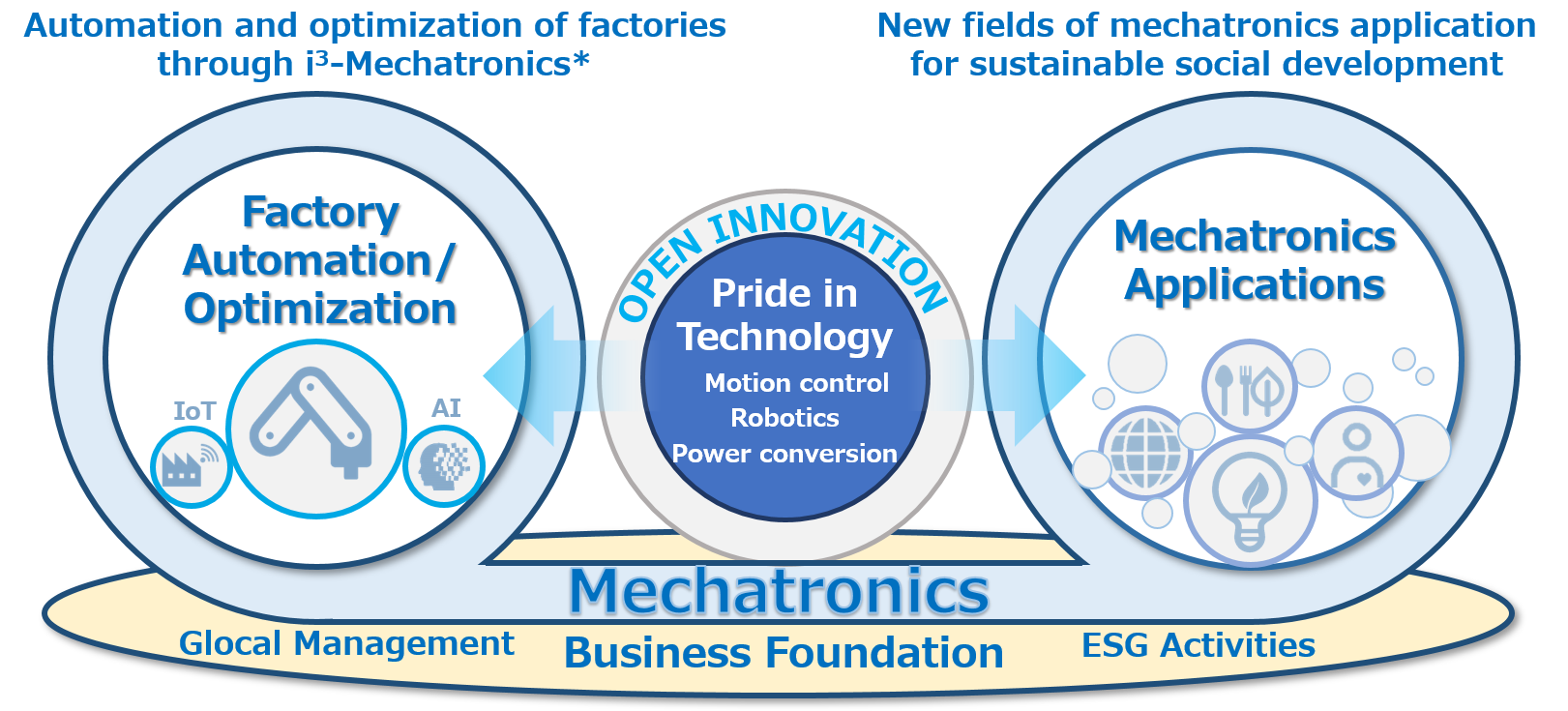
We have set "Respect Life", "Empower Innovation", and "Deliver Results" as our goals and established "Factory Automation/Optimization" and "Mechatronics Applications" as our business domains.
In the "Factory Automation/Optimization," we will provide new automation solutions by integrating mechatronics and ICT technologies with the aim of realizing a revolution in industrial automation based on i3-Mechatronics*.
We will also pursue the No.1 global market share in our core business areas of industrial robots and motion control.
In the "Mechatronics Applications," we will search and verify fields where mechatronics technology can be applied, and determine the business commercialization.
In particular, we will focus on business commercialization in the following areas.
* i3-Mechatronics: Yaskawa's solution concept for realizing new industrial automation revolutions
Since being founded in 1915,Yaskawa Electric has set "electric motors and their applications" as its business domain and supported the leading-edge industries of the age.
Currently a large number of equipment and facilities are driven by motors, and it is said that approximately 50% of the global power consumption is attributed to motors. Yaskawa, started with the production of motors for coal mines, has continued its progress along with the global development, as it manufactured products applying its motor technology for more than 100 years since its foundation.
Yaskawa' s core technologies are "motion control," "robotics," and "power conversion." These technologies and products born and created out of our search for elaborate control of mechanical movements contribute on a daily basis to improvements in the quality and efficiency of manufacturing around the world. We will continue to evolve technology and contribute to development of the world through our new solutions.
* Source:The Japan Electrical Manufacturers´ Association.
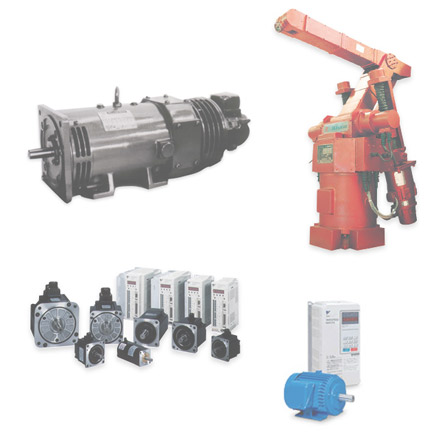
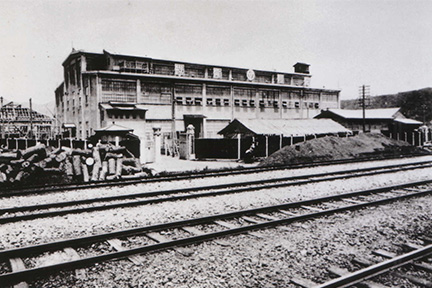
Our plant in the early days
(1919)
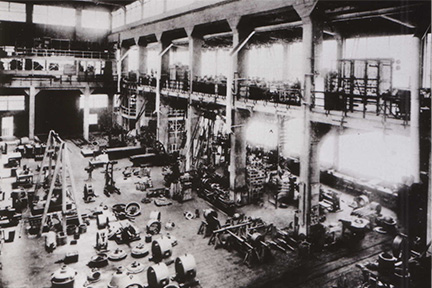
Plant interior in the early days
(1919)
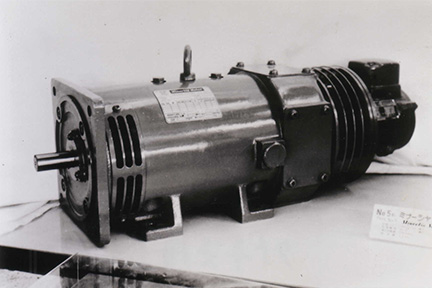
Minertia motor
(1958)
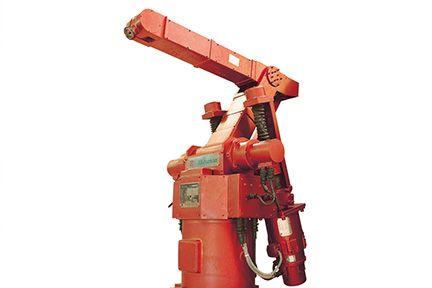
Japan's first all-electric industrial robot
(1977)
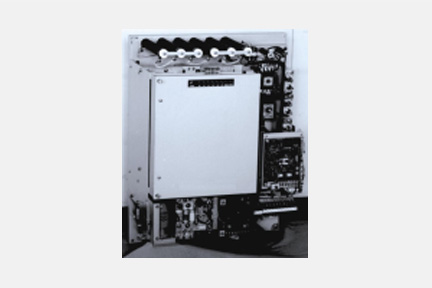
The world's first vector control AC drive
(1979)
Yaskawa's core technologies are "motion control," "robotics," and "power conversion." "AC servo motors," "AC drives," and "industrial robots" were developed based on these core technologies.
These are the three products of Yaskawa Electric boasting the world's highest level of performance and market share. We conduct global business with these world's top competitive products.
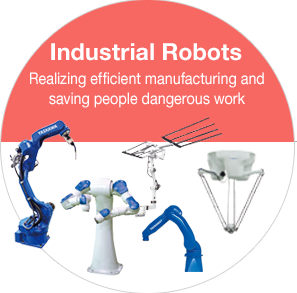
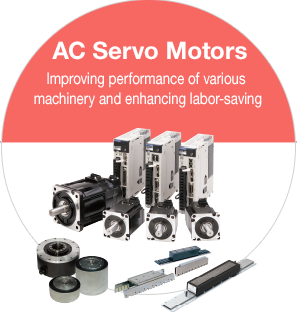

In the late 1960s, Yaskawa pioneered the concept of "Mechatronics," combining our customers' machinery, "mechanism" with our electronics products to yield greater performance.
As the concept of "Mechatronics" quickly became widespread, Yaskawa continued to develop innovative products that evolved machines and manufacturing with its passion for "world first." This attitude will be succeeded for years to come.
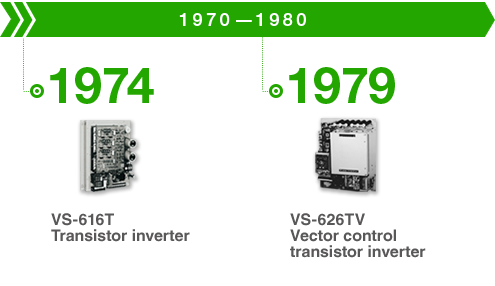
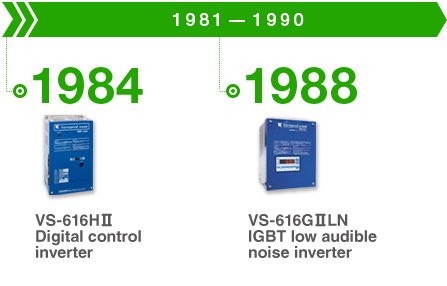
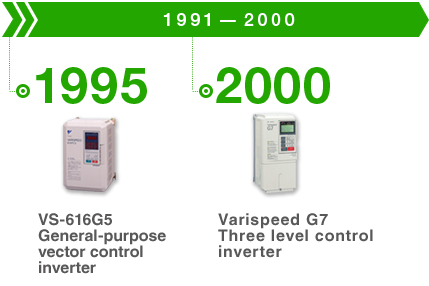
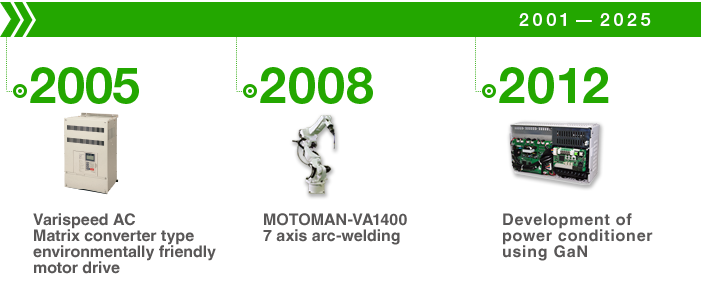

As part of our commemoration of 100th anniversary of Yaskawa Electric's foundation, the Kitakyushu headquarters was renovated and opened as "Robot Village" on June 1st, 2015.
The Robot Village is divided into seven zones, the head office building, robot factories, YASKAWA Technology Center, YASKAWA Innovation Center, YASKAWA History Museum, the cafeteria and the greenbelt.
Robot village is built environmentally-friendly and has reduced its CO2 emission by half the conventional facility.
Please come and enjoy the wonders of modern manufacturing.
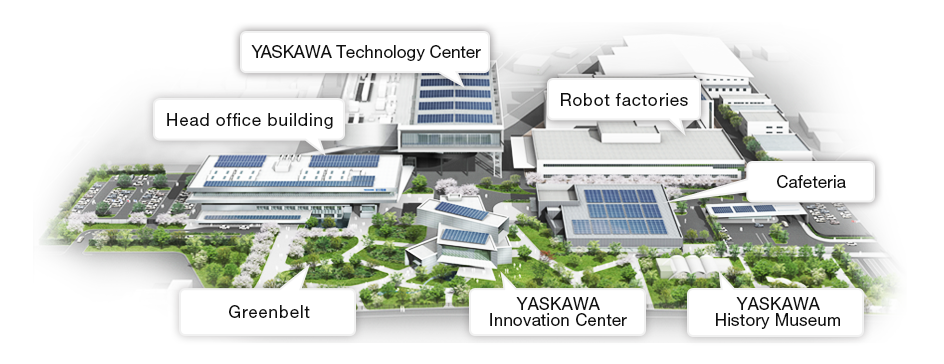
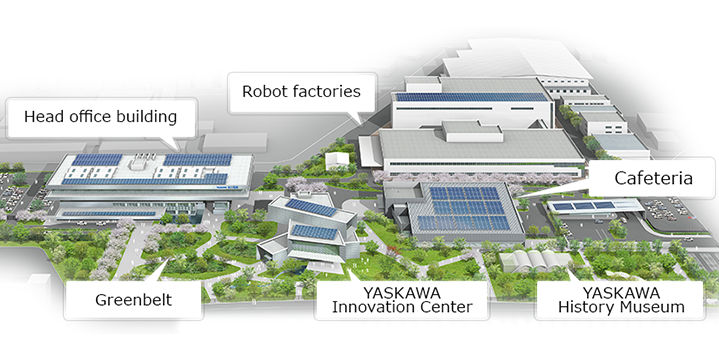
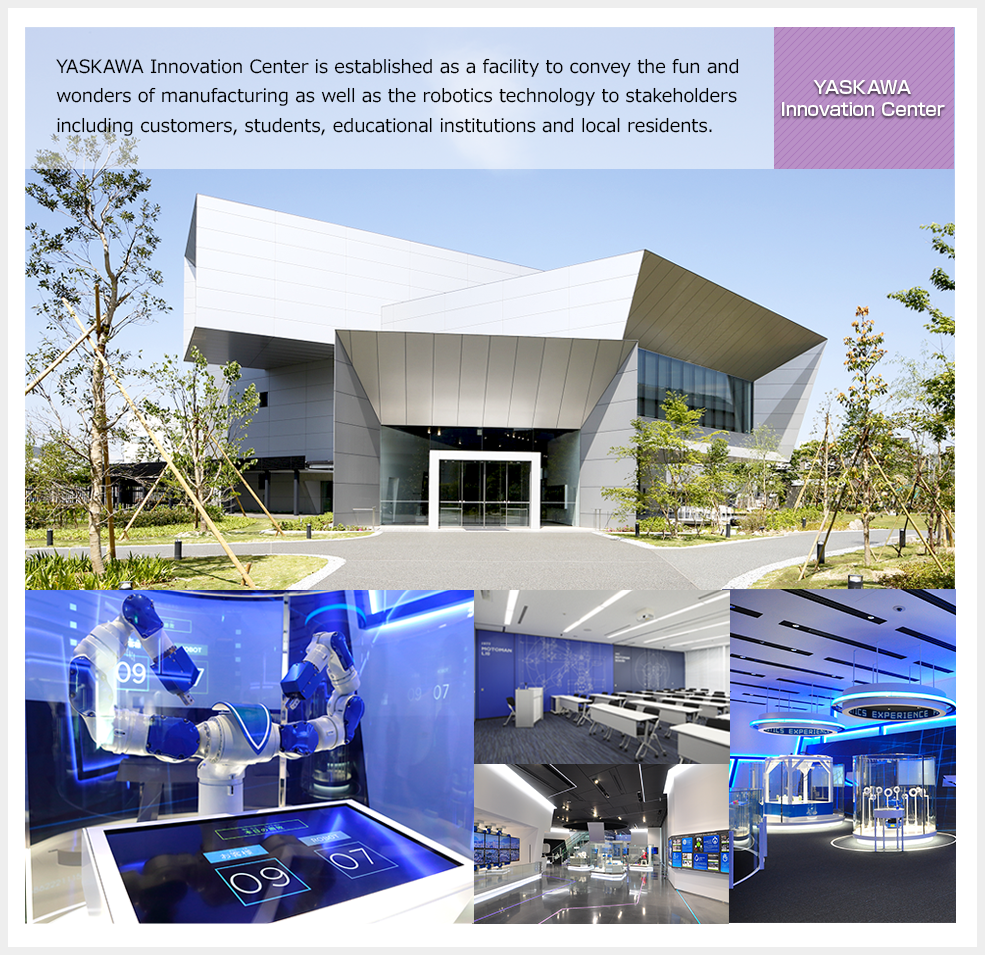
YASKAWA Innovation Center is established as a facility to convey the fun and wonders of manufacturing as well as the robotics technology to stakeholders including customers, students, educational institutions and local residents.
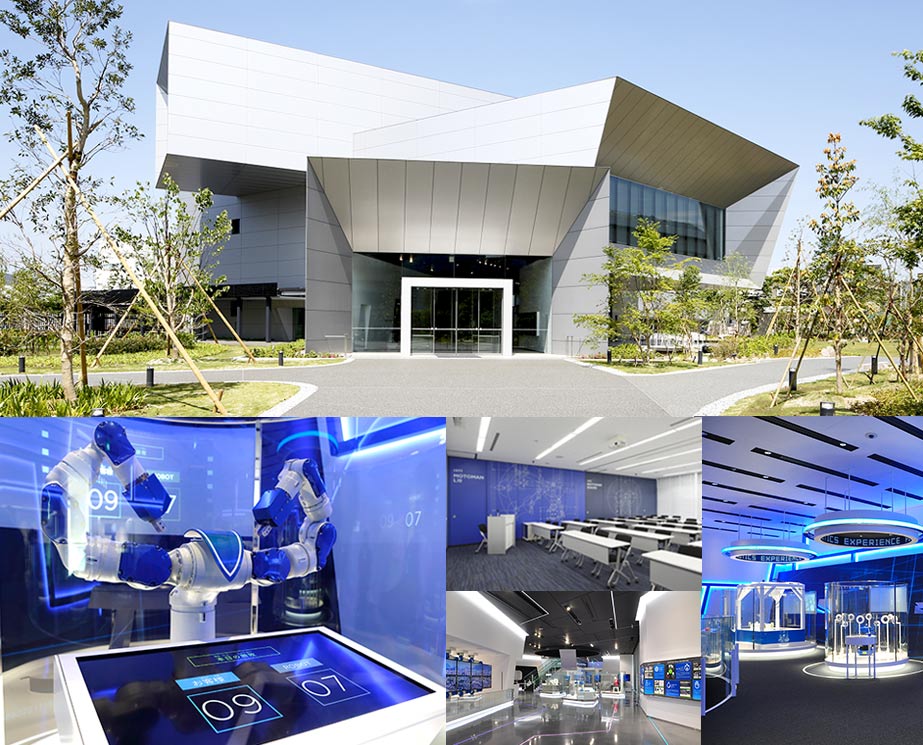
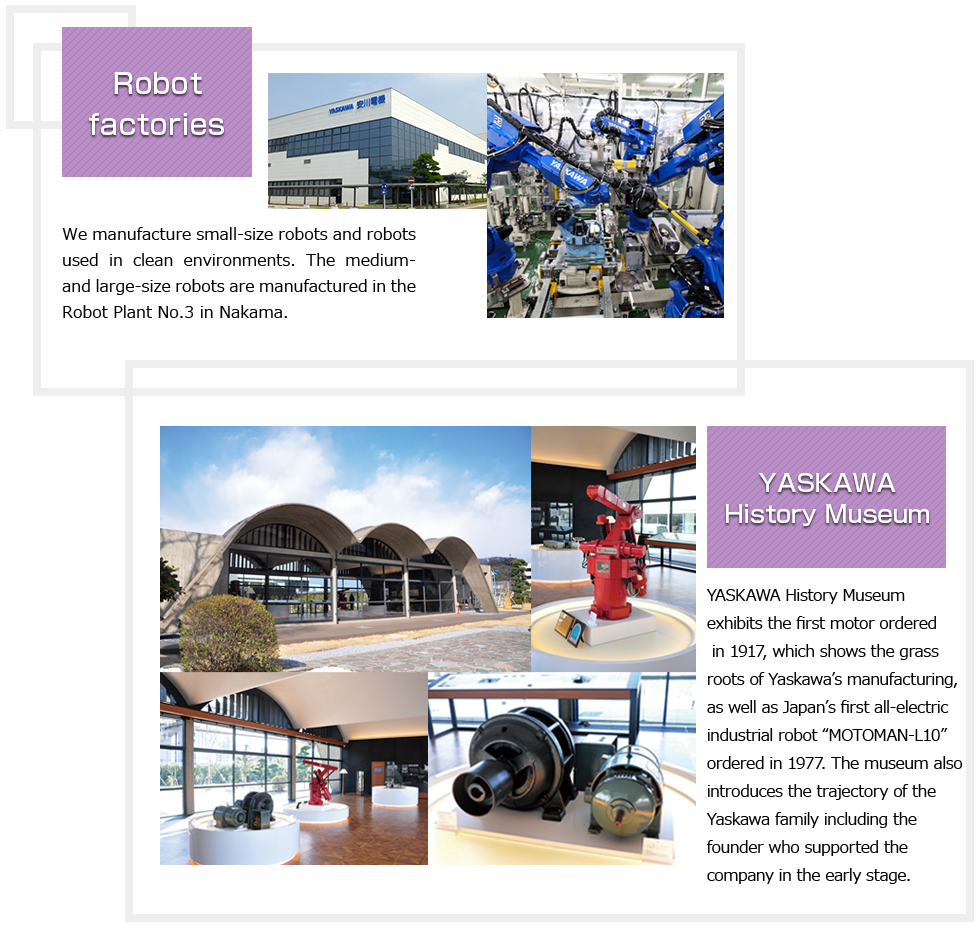
We manufacture small-size robots and robots used in clean environments. The medium- and large-size robots are manufactured in the Robot Plant No.3 in Nakama.
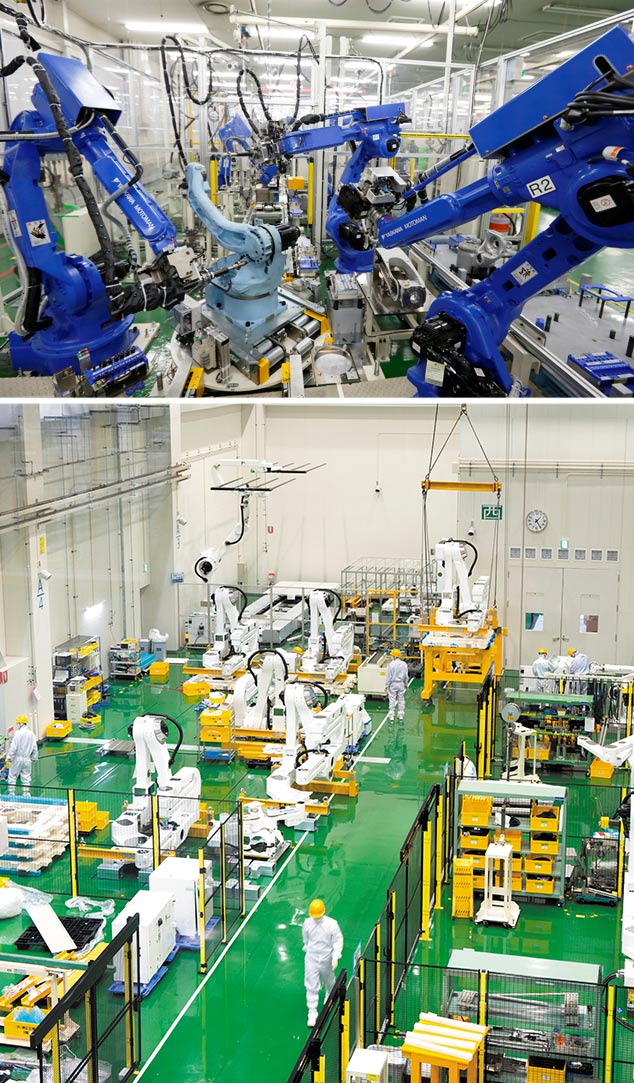
YASKAWA History Museum exhibits the first motor ordered in 1917, which shows the grass roots of Yaskawa's manufacturing, as well as Japan's first all-electric industrial robot "MOTOMAN-L10" ordered in 1977. The museum also introduces the trajectory of the Yaskawa family including the founder who supported the company in the early stage.
